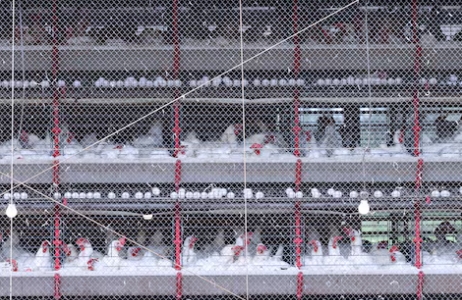
Chickens sit at a poultry farm as Brazil's egg exports soar amid stronger U.S. demand, in Taquari, Rio Grande do Sul, Brazil, March 12, 2025.
Herlon Brandao, director of Statistics and Foreign Trade Studies at the Ministry of Development, Industry, Trade and Services, noted at a press conference: “Poultry exports had been on the rise before the outbreak.” The detection of highly pathogenic avian influenza (H5N1) in Montenegro, Rio Grande do Sul, led several countries to impose import restrictions, impacting Brazil’s status as the world’s top poultry exporter.
In May, export values decreased by 12.9% to $655 million, with volumes dropping 14.4% to around 363,100 metric tons. Brazil, which supplies about 35% of global chicken meat, faced bans from key markets, with some restricting imports nationwide and others targeting the affected region.
The government acted quickly, implementing sanitary measures and culling approximately 17,000 birds at the affected farm. The Ministry of Agriculture and Livestock stated: “The risk of human infection by the avian flu virus is low and occurs mostly among handlers or professionals who have close contact with infected birds.” They confirmed that properly cooked poultry products pose no risk to consumers.
Authorities are working to limit bans to Rio Grande do Sul or Montenegro through negotiations with trade partners, aiming to resume exports from unaffected areas. Analysts estimate monthly losses of up to $250 million but note that redirecting shipments to alternative markets and strong biosecurity measures could aid recovery. Increased domestic supply may temporarily lower local poultry prices, benefiting consumers.